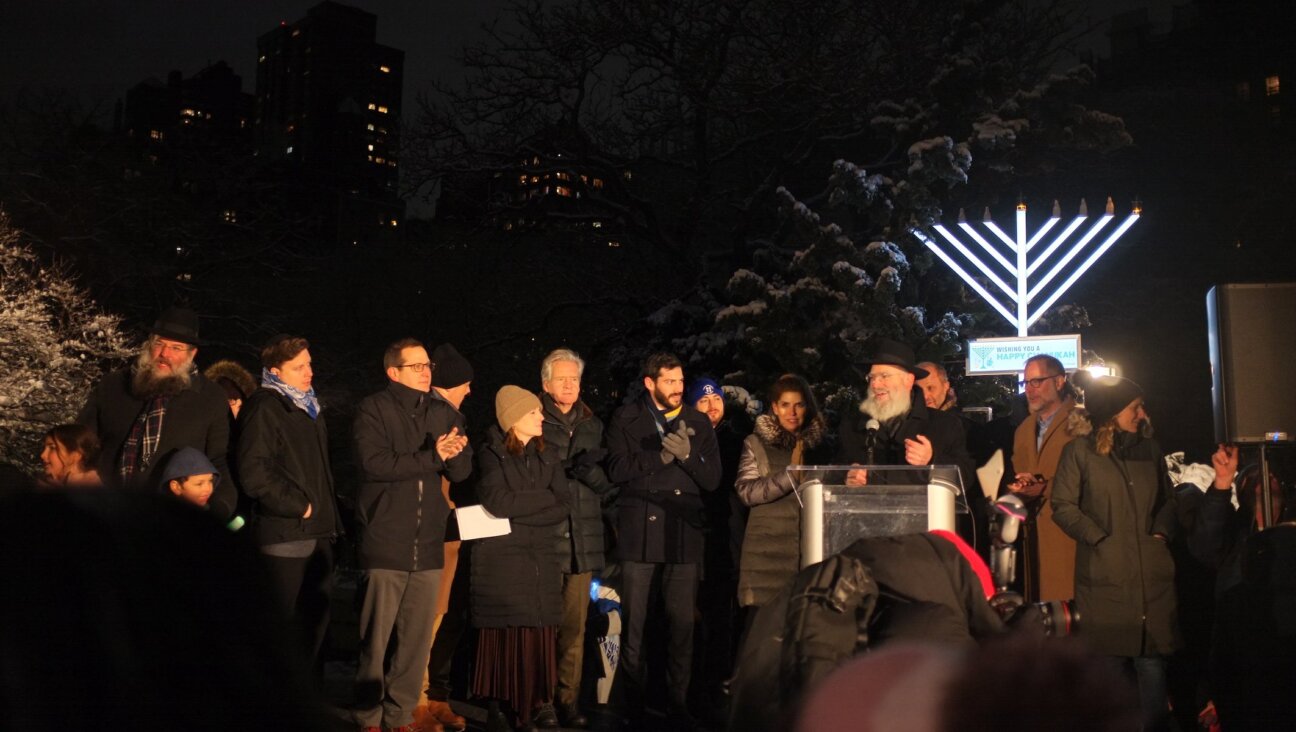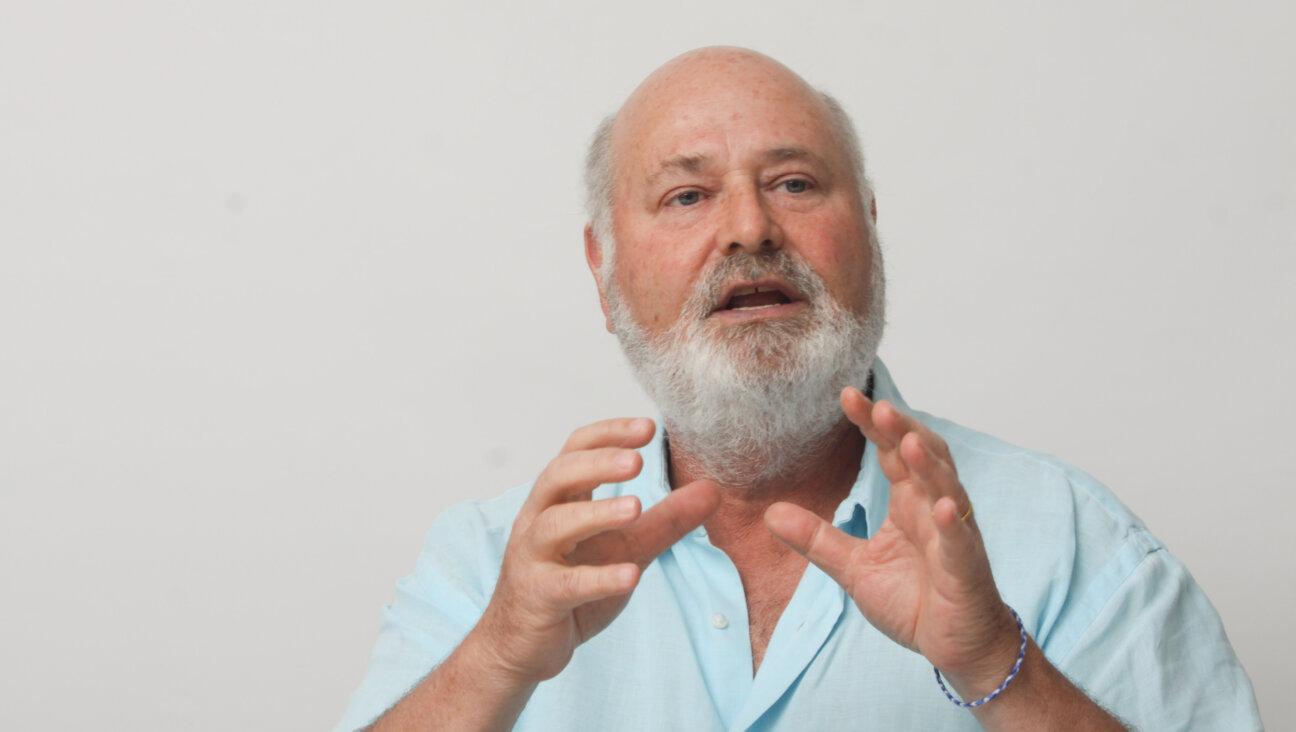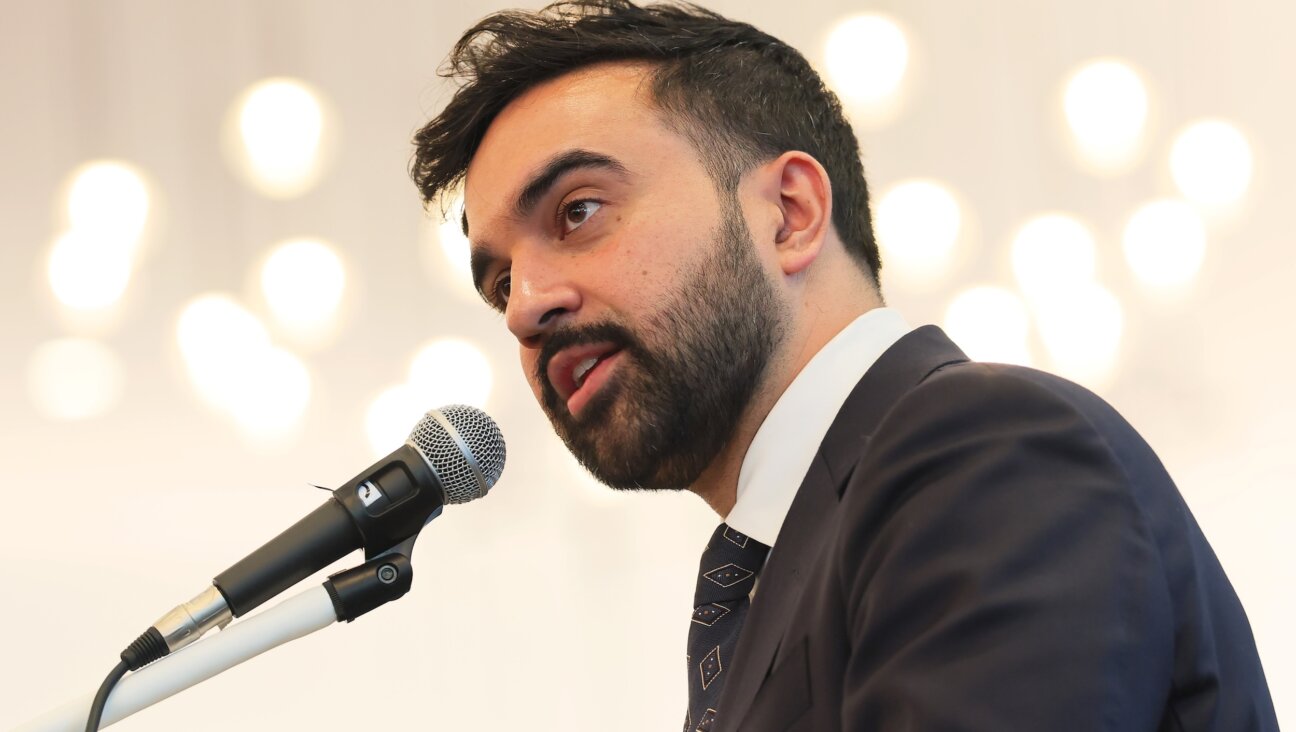Why Linda Sarsour Should Speak — And Sebastian Gorka Should Not

Image by Getty Images
This is the season of conferences and commencements, which means it’s time for the inevitable verbal boxing match over who is an acceptable speaker and who is not. Up next is whether Linda Sarsour, a Palestinian-American activist and one of the organizers of the Women’s March On Washington, should — or should not — speak at a commencement ceremony for a branch of the City University Of New York.
If you’ve followed these controversies in the past, you know where this is going.
A few noisy but powerful voices on the Jewish right are demanding that CUNY rescind the invitation because of Sarsour’s extreme views on the Israeli-Palestinian conflict. Others, predictably, defend her interfaith work in this country and her right to free expression. Because CUNY is a public university, top elected officials are drawn into the fray.
Commencement speeches are true honors — I’ve been privileged to give four of them myself — and Sarsour would not have been my choice. But CUNY did the choosing, and, in my opinion, she should be allowed to speak. I’ll use the case of another controversial speaker, Sebastian Gorka, to show why we need to learn to make the distinction between who a person is and what a person says, between behavior and belief.
I understand the qualms of those like Malcolm Hoenlein, executive vice chairman of the Conference Of Presidents Of Major American Jewish Organizations, and Morton Klein, president of the Zionist Organization Of America, who argue that the Sarsour invitation should be rescinded. From their Israel-right-or-wrong perspective, she is all wrong: someone who supports armed struggle against the occupation, has said nasty things about Israeli leaders, questions whether Zionism is compatible with feminism — or compatible with any quest for human rights or dignity.
“Sarsour’s values conflict with American values,” Klein wrote in a letter to New York’s governor, Andrew Cuomo, urging him to rescind the invitation to her to speak on June 1 at CUNY’s Graduate School Of Public Health & Health Policy. Klein said much the same thing in a letter to U.S. Sen. Kirsten Gillibrand, too.
“There is no reason she should be given recognition,” Hoenlein told the New York Jewish Week. “It never would be permitted if someone had made similar comments about another ethnic or religious group.”
The feisty New York City tabloids have also weighed in on both sides. The New York Daily News: urged that she speak, while a headline in the New York Post called her “NYC’s queen of hate.”
This is not an easy call. But Sarsour’s troubling statements and beliefs must be measured against the real accomplishments this Brooklyn native has made. The executive director of the Arab American Association Of New York, Sarsour was one of the organizers of the anti-Trump women’s march that drew an estimated 5 million people worldwide and was, by every account, joyful, positive, inclusive and largely on message (and therefore free of anti-Israel sentiments). She helped raise nearly $140,000 to repair a desecrated Jewish cemetery near St. Louis.
She has earned the trust and admiration of New York political leaders, Jew and non-Jew alike, for working with them to counter bias in law enforcement and improve interfaith dialogue. Brad Lander, a Jewish city council member from Brooklyn, called the attacks against Sarsour “cowardly and baseless.”
So the complaint against her CUNY appearance isn’t about her behavior. It’s about what she believes.
Contrast that with the controversy over Sebastian Gorka, the deputy assistant to the president who has been the subject of serious reporting by the Forward and other news outlets. Last week, I argued that he shouldn’t speak at the upcoming New York conference held by The Jerusalem Post — not because of his views, though they are extreme and frightening, but because of his past behavior and what that says about his character.
Gorka has never satisfactorily explained mounting evidence that he belonged to a far-right group in Hungary that, had he disclosed the affiliation, might have prevented him from acquiring U.S. citizenship in 2012 (and, needless to say, a job in the White House). He never confirmed that he received security clearance to do his job overseeing counterterrorism policy in the White House. He never explained his support for a Hungarian paramilitary group that was subsequently banned in that country.
He doesn’t deserve to share the stage with Israeli elected officials and American communal leaders because of who he is, not because of the policies he’s promoting.
The same standard should have applied to the unfortunate decision by Jewish Voice For Peace to feature Rasmea Odeh as a speaker at its biennial conference in Chicago in March. Odeh’s views on the Israeli-Palestinian conflict — radical though they are — should not necessarily have barred her from speaking. But the fact that she was convicted of a bombing at a Jerusalem hotel that left two people dead, and then she lied about it when applying for U.S. citizenship, and then expressed no remorse, was reason enough not to invite her in the first place. (And it’s the reason she is being deported from the United States.)
Is all speech protected in America? Not if it’s the equivalent of falsely shouting “fire” in a crowded theater. But the boundaries of acceptability have to be considered case by case, in their particular context, and judged against the imperative to allow as much free expression as is responsible, even when it makes us highly uncomfortable.
Otherwise, every year at this time, the same tired arguments will dominate our discourse, promoted by the same people, and leading to the same, disagreeable result. I don’t want that. Do you?
Contact Jane Eisner at [email protected] or on Twitter, @Jane_Eisner
















